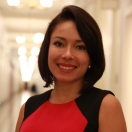
Today marks a new beginning in our nation’s relationship with Cuba, furthering a path that will engage and empower the Cuban people. While we may be separated by 90 miles of water, we are brought together through shared relationships and the desire to promote a democratic, prosperous, and stable Cuba.
The opening of the embassies in Washington, D.C. and Havana culminate an important step in the normalization of diplomatic relations between the U.S. and Cuba. President Obama’s new approach towards Havana moves beyond decades of unsuccessful efforts to isolate Cuba, and is the continuation of a process designed to allow the Cuban people chart their own future. This will allow us to increase contact with the Cuban government and the Cuban people, helping us to contribute to the democratic development and prosperity of the country. To inaugurate the re-opening of the Cuban embassy in the United States, Cuban Foreign Minister Bruno Rodriguez travelled to Washington and became the first Cuban official to visit the capital since 1959.
The embassy openings in Washington, D.C. and Havana follow the decision taken by Secretary of State John Kerry to rescind the designation of Cuba as a State Sponsor of Terrorism, and President Obama’s announcement to formally re-establish diplomatic relations and permanent diplomatic missions on July 1. These measures further advance U.S. interests, including counterterrorism and disaster response. The Administration is also taking steps to improve travel and remittance policies that will increase people-to-people contact, support civil society in Cuba, and enhance the free flow of information to, from, and among the Cuban people.
Starting today, the U.S. Interests Section in Havana, as well as its Cuban counterpart in Washington have been upgraded to the rank of embassies in full operation. Assistant Secretary of State Roberta Jacobson -- who stood at the forefront of the negotiations between the United States and Cuba -- led the State Department’s delegation. The Cuban Minister of Foreign Affairs Bruno Rodriguez participated, along with a delegation of 500 guests, in the ceremony where the Cuban flag was raised over the new embassy, followed by a meeting with Secretary of State John Kerry, in the State Department, where the Cuban flag has also been deployed, symbolizing the restoration of diplomatic relations.
While the official opening ceremony of the Cuban embassy was held today in Washington, the celebration in Havana is expected to take place on August 14, when Secretary Kerry will visit Cuba to raise the American flag over our embassy once more. The U.S. embassy in Cuba was shut in 1961, when we severed diplomatic relations with Cuba, and was later reopened in 1977 under an Interests Section status, following an agreement between President Jimmy Carter and Fidel Castro. Coming after the formal restoration of diplomatic relations with the Republic of Cuba, we will increase our staff size at the American embassy and our diplomats will be able to engage more broadly across the island. President Obama remains committed to ensuring that the Cuban people are able to prosper and live in freedom and security, and enjoy a connection with the world where their incredible talents and ingenuity and hard work can thrive.
Here in the United States, we’ve seen robust enthusiasm from the American public. Many Americans citizens are eager to travel to Cuba and many American businesses are eager to invest in Cuba. And as evidenced in public opinion surveys, Cuban people in the island also show greater openness towards our policy of engagement. Americans and Cubans alike are ready to move forward.
The differences between our two governments are profound; the U.S. government will remain committed to the respect and promotion of human rights, fundamental freedoms and democracy in Cuba, and we expect similar reciprocity from our Cuban counterparts. As more exchanges take place, the relations between the U.S. and Cuba gradually consolidate the connection between the Cuban people and Americans, which will be reflected by a more constructive link between our governments. This does not only represents a turning point in our relationship with the Cuban government, but will also have a positive impact throughout the hemisphere and our continued work toward an expanded commitment to our regional neighbors.
We are pleased with today’s embassy openings, which represent another step towards a normalized and productive relationship between the United States and the Cuban people. Ultimately, it will be the Cuban people who drive economic and political reforms. That is why President Obama took steps to increase the flow of resources and information to ordinary Cuban citizens in 2009, 2011, and today. The Cuban people deserve the support of the United States and of an entire region that has committed to promote and defend democracy. No one expects Cuba to be transformed overnight. But through our renewed engagement with the island, a better future lies ahead.


